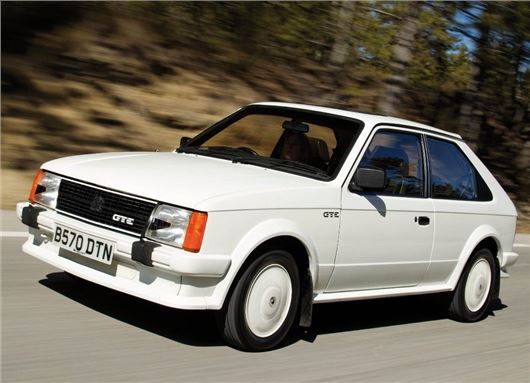Clubs criticise MoT changes

The handling of the proposed changes to the MoT system has been criticized by the Federation of British Historic Vehicle Clubs – the body that speaks on behalf of UK car clubs and their members.
As we reported on Tuesday, a consultation process is currently under way to gauge opinion over proposed changes to Britain’s MoT regulations – and this could mean that cars over 30 years old could be exempt from an annual MoT test.
That’s why the Department for Transport (DfT) wants to know your views, including whether you think any exemption should be based on vehicle age or on a fixed date of manufacture. To have your say, log on to: www.dft.gov.uk/classic-mot/survey-classic-vehicle-exemption.
According to our research, the pass rate for a 1984 car is currently 55.7% - that's about the same as a car from 2002.
Now the FBHVC has issued a 1200-word statement outlining its response to the proposals, and is critical of the way in which the potential changes have been presented so far. It says, ‘The Federation believes the matters concerned are only superficially described in the website’, and is convinced that the issues are ‘too complex to be dealt with in this manner’.
The FBHVC is also critical of the six questions that have been presented by the DfT as part of its online consultation with the public. For example, part of the first question simply asks whether the respondent thinks classic cars and vans should be exempt from MoT testing, which the FBHVC considers too vague to be properly answerable, ‘It is not clear what the question means by “classic” and more seriously what respondents will understand to be the meaning.’
Since the consultation process was first launched, fears have been raised that any changes to Britain’s MoT system could have serious implications for owners of modified vehicles. Indeed, the proposal that cars over 30 years of age could be exempt from MoT testing would only apply if (to quote the DfT) the vehicles ‘have not been subject to substantial change’.
Understandably, the FBHVC is calling for clarification of what is meant by ‘substantial change’, and has expressed concerns that this could affect large numbers of classic car owners in the UK
‘There are, to the certain knowledge of the Federation, very many vehicles, currently regarded in the UK without question as being historic, which have undergone substantial changes to the technical characteristics of their main components, often very early in their long lives,’ it says.
The FBHVC is keen to ensure that any changes to the MoT affecting owners of modified vehicles will be practical, particularly when it comes to interpretation of the ‘substantial change’ phrase.
The Federation explained in its statement, ‘It would be wrong in the United Kingdom context to place any but the least constraining interpretation on the term. We look to the DfT to work with the Federation and other interested bodies to reach a solution which respects valid British traditions in defining what in the British context, is a “vehicle of historic interest”.’
We’ll keep you updated on any further developments as soon as they’re available. Meanwhile, don’t forget to have your say – both here at Honest John Classics and via the DfT website.
WHAT DO YOU THINK? Would you welcome MoT exemption for vehicles over thirty years old or do you think that’s a step too far? What MoT changes would you like to see – if any? Whatever your opinion, send an email to: keith.moody@honestjohn.co.uk.
Compare classic car insurance quotes and buy online. A friendly service offering access to a range of policies and benefits.


 Keith Moody
Keith Moody
 NEC classic motor show 2020 postponed due to Covid 19 concerns
NEC classic motor show 2020 postponed due to Covid 19 concerns
 Classic car auction house Coys goes into administration
Classic car auction house Coys goes into administration
 Motor racing great Sir Stirling Moss dies aged 90
Motor racing great Sir Stirling Moss dies aged 90
 Alfa Romeo anniversary races set for Silverstone
Alfa Romeo anniversary races set for Silverstone
 Government to make E5 fuel available for classic owners
Government to make E5 fuel available for classic owners
 Plans to introduce cleaner fuel could damage more than a million classic cars
Plans to introduce cleaner fuel could damage more than a million classic cars
 Top 10: Classic cars from the Gulf motor racing heritage collection
Top 10: Classic cars from the Gulf motor racing heritage collection


